Opioid use disorder, otherwise known as OUD, is a terrible condition that is nevertheless treatable.
However, when an individual is pregnant whilst suffering from an opioid use disorder, then things do get a bit more complicated.
Pregnancy adds a whole host of factors that could interfere with treatment for opioid addiction, ranging from hormonal changes and different physical stressors in the body to the serious risk that opioid use can cause harm to the developing fetus.
When an OUD is managed and medicated correctly, you can still have a healthy pregnancy and a healthy baby.
If you are pregnant and also suffering from an OUD, then there are a number of things you can do to manage your situation correctly.
Opioids cover a wide range of legal and illegal substances, including heroin, fentanyl, morphine, codeine and more, all of which require their own appropriate treatment solutions.
There are a number of Do’s and Don’ts when it comes to treating an opioid use disorder during pregnancy, [1] which we will explore further below.

An opioid use disorder (OUD) is a term used to describe someone who is addicted to opioids.
Whilst there are different levels of addiction, it is important to understand that opioids can be incredibly strong and dangerous drugs to consume.
This also makes them one of the most dangerous categories of substances to recover from.
You might have an opioid use disorder if you can relate to any of the following:

You are at risk of overdosing on opioids if you take more than the recommended amount.
Overdosing can slow or stop your breathing altogether and even has the ability to end your life.
If you think you or someone you know is overdosing on opioids, seek emergency medical help immediately.
Below are some signs and symptoms that you may be overdosing on opioids:
If you are experiencing any of the above signs and symptoms, then you might be at risk of an overdose and should seek help immediately.
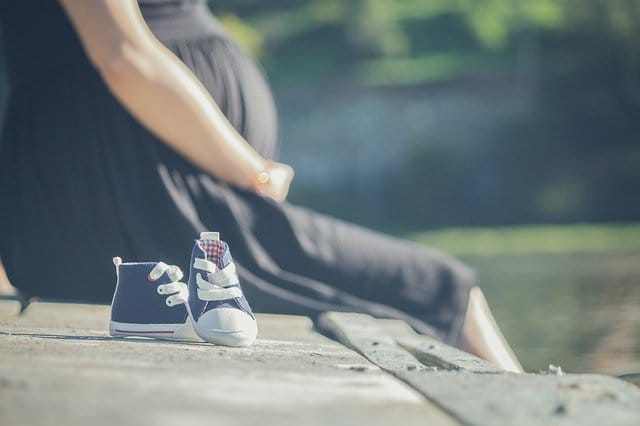
There are a number of medications that are safe to use to treat an OUD.
In fact, methadone and buprenorphine are the safest medicines to manage OUD, including during your pregnancy. [2]
Both methadone and buprenorphine are safe to take when you want to stop and withdraw from opioid use.
They will help you to recover in a safe and managed way, if prescribed the right doses.
With your withdrawal symptoms under control, you will be able to focus on what is more important to you during this time, which is your baby and caring for your body whilst it goes through these changes.
Many people who are pregnant whilst suffering from an opioid use disorder are concerned about Neonatal Abstinence Syndrome (NAS). [3]
This is a group of withdrawal symptoms sometimes present in babies who are exposed to substance abuse whilst still in the womb, effectively meaning that the infant suffers from withdrawal after birth.
However, the good news is that NAS can be diagnosed, managed and treated when the correct medical support is provided.
If a mother presents herself to a hospital with a substance use disorder of any kind, then the child welfare agencies will report this.
This will then trigger a care plan for you and your baby, to ensure that you are in the best possible place to look after your baby and that they receive the best possible support.
By engaging with this, you are simply showing that, in the long run, you want what’s best for your baby and for yourself.
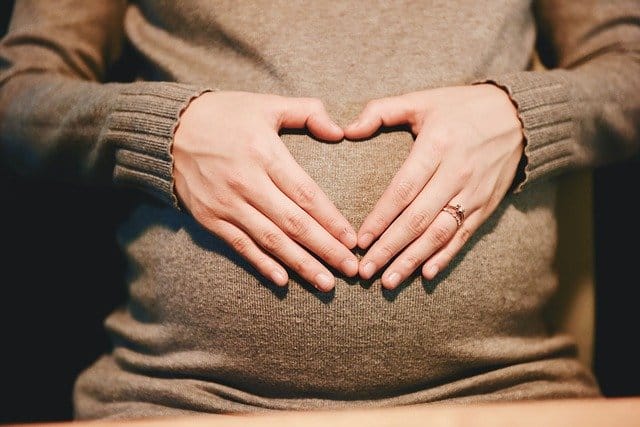
If you abuse opioids regularly and share needles with other drug users, then you are at risk of developing other diseases such as HIV and hepatitis.
Both of these will impact your body greatly, including your liver and your immune system.
Unfortunately, if you are pregnant then you run the risk of passing on these infections to your baby during pregnancy.
As with most types of drug addictions, you are at risk of developing depression if your addiction goes on for long enough without being treated.
This is particularly true for pregnant people, or people who have just given birth.
Postpartum depression is common among pregnant people who aren’t suffering from addiction issues, so you can only imagine how common depression is among pregnant people who are also addicted to substances.
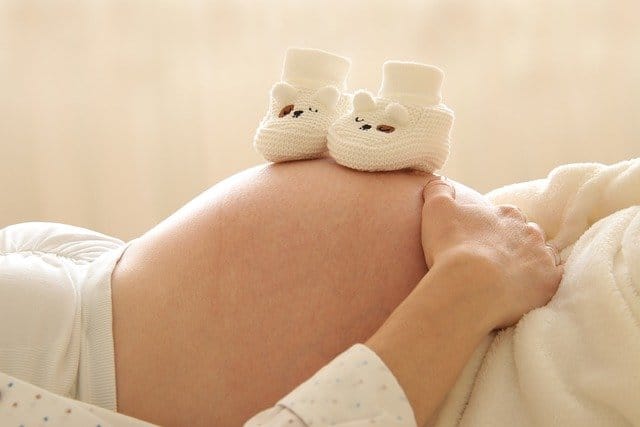
Prescription opioids are becoming increasingly common.
They are used as painkillers to treat a whole host of illnesses and pains.
These are frequently prescribed by GPs, hospital doctors and even dentists up and down the country.
They could even be used to treat illnesses such as coughs.
In the UK, you need a prescription to get access to prescription opioids, and your healthcare provider will be able to provide you with an appropriate amount.
However, a doctor should know that taking opioids whilst still pregnant will cause serious problems for you and your baby.
So, if you are pregnant and your doctor wants to prescribe you opioids, then you need to make them aware as soon as possible that you are pregnant.
They will then be able to prescribe you with alternative medications.
There are a range of other types of medications and drugs that are safe for you and your baby to use, provided they are taken in appropriate doses and for the correct number of time.
Whilst you might only be able to gain access to a small number of these, your doctor will be able to recommend the best painkillers that are suitable for you.
Below are listed some of the painkillers that might be safe for you to use:
There are literally hundreds of different drugs falling under the opioid category, some of which with numerous different brand names.
Even for doctors, things can get confusing. So, if you think that you are taking a substance or drug that contains opioids, then you need to tell your doctor immediately.
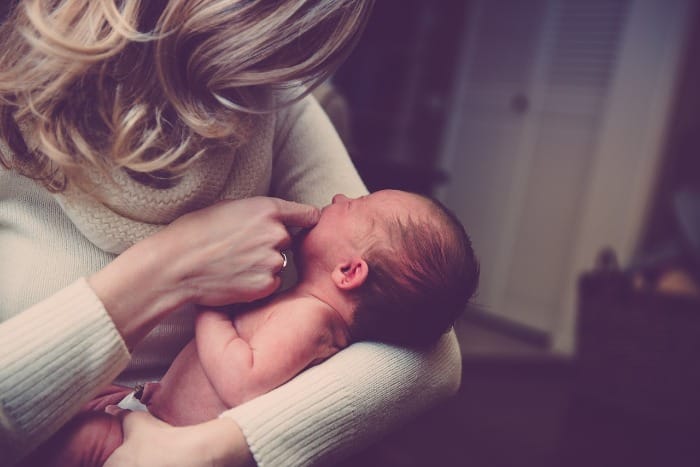
It is a fact that taking opioids whilst pregnant will affect not only your health but that of your baby as well.
If you are abusing opioids, then you will need to make sure that you are taking some form of birth control in order to ensure that you are not at risk of getting pregnant.
There are a number of pregnancy complications you will be at risk of if you do abuse opioids, including:
Finally, you might be at risk of Sudden Infant Death Syndrome, [9] which is often commonly referred to as SIDS.
This is when a baby aged 1 year or less dies in an unexplained way whilst they are sleeping. If you abuse opioids whilst pregnant, then your baby will suffer from an increased risk of SIDS.

Lots of people who find themselves pregnant whilst also abusing opioids want to completely withdraw from taking them once they hear about the terrible and very serious side effects.
However, for some pregnant people, this might not be the best course of action.
Seeking treatment and withdrawing in a slow and mannered way will always be the best route forward.
Opioid withdrawal symptoms can be incredibly dangerous, which is why you might need to substitute opioids with less dangerous drugs or medication.
Withdrawing from opioids too quickly whilst pregnant with a baby could result in serious consequences, such as preterm labour, foetal distress or a miscarriage.
If you want to withdraw from taking opioids whilst pregnant, then talk to a doctor or an addiction recovery specialist.
A doctor will help to create an opioid withdrawal plan for you, which will help increase the chances of a healthy pregnancy. [10]

If you are pregnant and suffering from any substance use disorder, including opioid addiction, then you should seek help via a drug and alcohol rehab treatment centre.
You can get help for an addiction via inpatient or outpatient rehab treatment, where you will undergo a range of different treatment options selected for your specific needs. [11]
There are two main types of rehab across the United Kingdom – inpatient (or residential) drug and alcohol rehab and outpatient care.
With opioid addiction, there is a good chance that you will be required to attend inpatient rehab due to the intensity of these substances.
This would involve temporarily moving into a drug and alcohol rehab facility to undergo your treatment.
Alternatively, if your opioid addiction is not severe, then you might be able to opt for outpatient rehab.
This type of rehab treatment is for those with a less severe drug or alcohol addiction and would involve you recovering at home, in the comfort of familiar surroundings and with the support of loving family and friends.
You would get to eat and sleep at home and would visit a nearby drug and alcohol rehab facility on a regular basis for treatment and checkups.
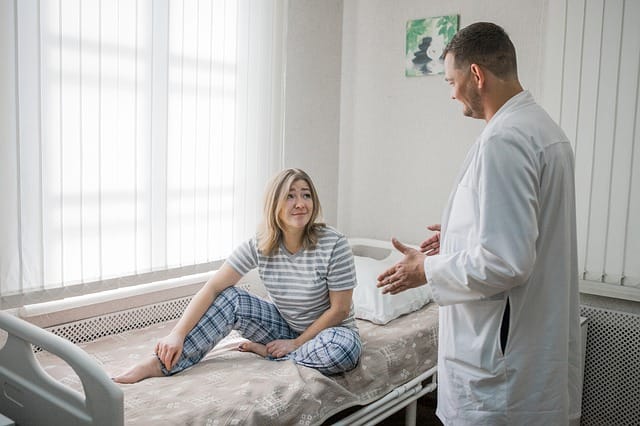
When you first arrive at a drug and alcohol rehab facility, you will undergo a medical detox.
This detox will help you to withdraw physically from whatever addictive substance you are struggling with, whether that be opioids or something else.
This is often said to be one of the hardest phases of recovery, as your body is physically withdrawing and craving the substance.
There are a whole host of symptoms and side effects associated with opioid detox, which is why it is always recommended to detox in a rehab facility where you can be monitored by drug and alcohol addiction professionals.
This stage usually lasts approximately 10 days but could last longer depending on the severity of your addiction.

The next stage of the recovery process is therapy.
For most people who suffer from severe substance use disorders, this stage can last a number of years, months or even sometimes an entire lifetime to keep them on track, with therapy becoming a regular part of their lives.
There are a number of different therapy techniques now available in drug and alcohol rehab centres up and down the country, from Cognitive Behavioural Therapy (CBT) to Motivational Interviewing (MI) and even holistic therapy such as art therapy, yoga and drama therapy.

Once you leave your chosen rehab facility and finish your initial treatment plan, you will be given your very own aftercare plan to continue as you return back to your normal, everyday life.
This aftercare plan will consist of a list of tips and tricks on how to stay on track to recovery, as well as a number of helplines to call and coping mechanisms that work for you.
You will create this aftercare plan during your last few days or weeks within the rehab facility.
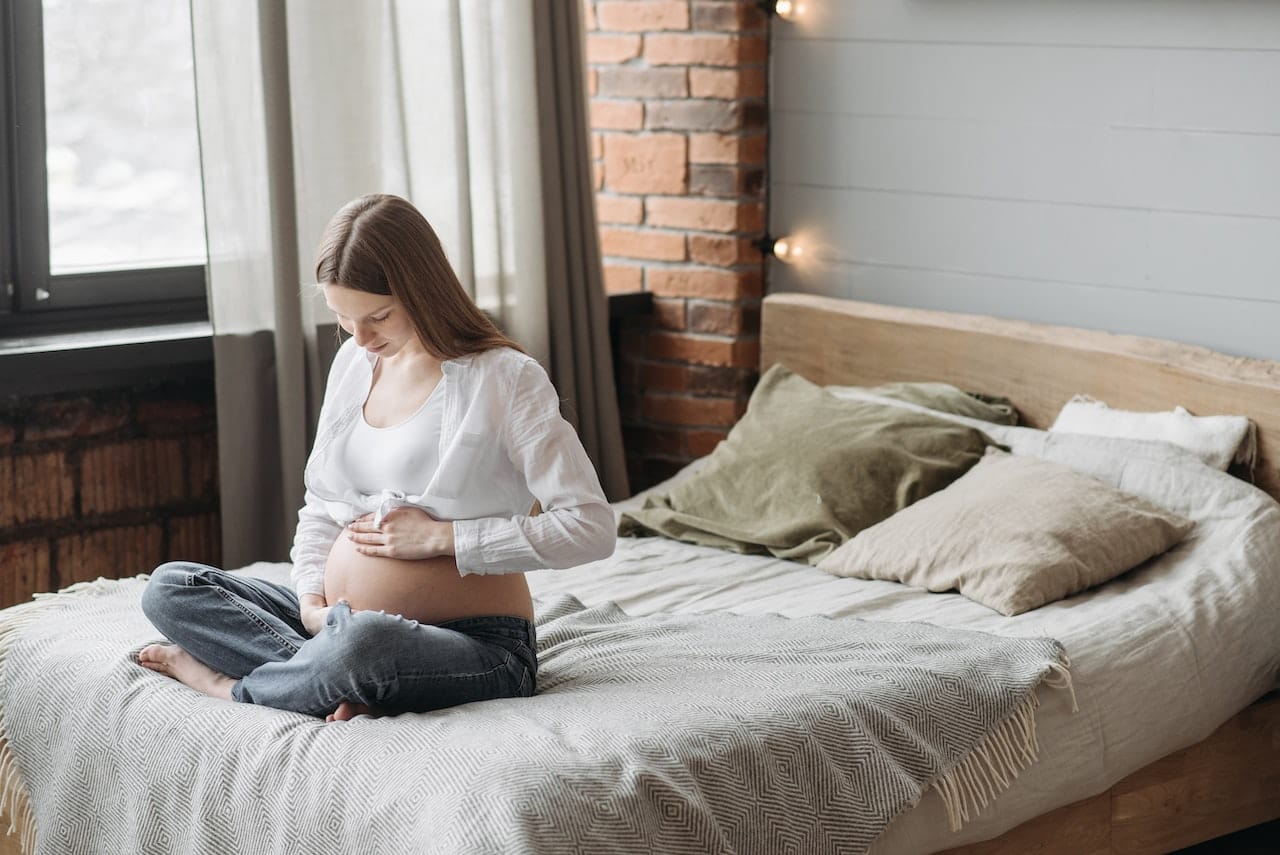
If you are suffering from an addiction to opioids, whether you are pregnant or not, you need to seek help for your addiction.
The team at Rehab 4 Addiction are on hand to help, offering advice and support for anyone suffering from addiction, no matter the substance and no matter their condition.
With the right support behind you, any addiction can be overcome.
We work hard to link you to the best rehab services for your needs.
Every drug and alcohol rehab we work with are vetted by the Care Quality Commission (England and Wales) or the Care Inspectorate (Scotland).
You can start your recovery journey today by calling our experts for free on 0800 140 4690
[1] https://library.samhsa.gov/sites/default/files/sma18-5071fs2.pdf
[2] https://www.ncbi.nlm.nih.gov/books/NBK310658/
[3] https://www.uptodate.com/contents/neonatal-abstinence-syndrome-nas-management-and-outcome
[4] https://www.nhs.uk/conditions/spina-bifida/
[5] https://www.cdc.gov/birth-defects/about/gastroschisis.html
[6] https://www.ncbi.nlm.nih.gov/books/NBK482335/
[7] https://www.nhs.uk/conditions/pre-eclampsia/
[8] https://www.ncbi.nlm.nih.gov/books/NBK562268/
[9] https://www.nhs.uk/conditions/sudden-infant-death-syndrome-sids/
[10] https://www.cdc.gov/opioid-use-during-pregnancy/treatment/index.htm
[11] https://nida.nih.gov/publications/drugs-brains-behavior-science-addiction/treatment-recovery